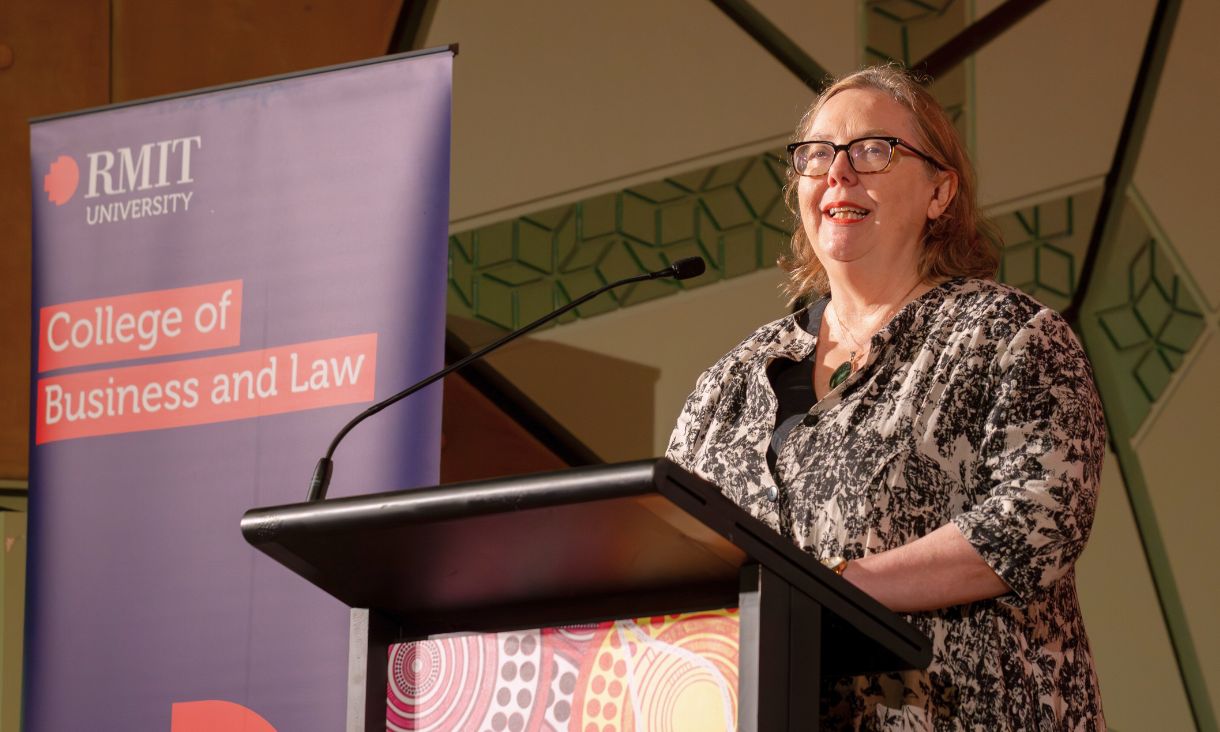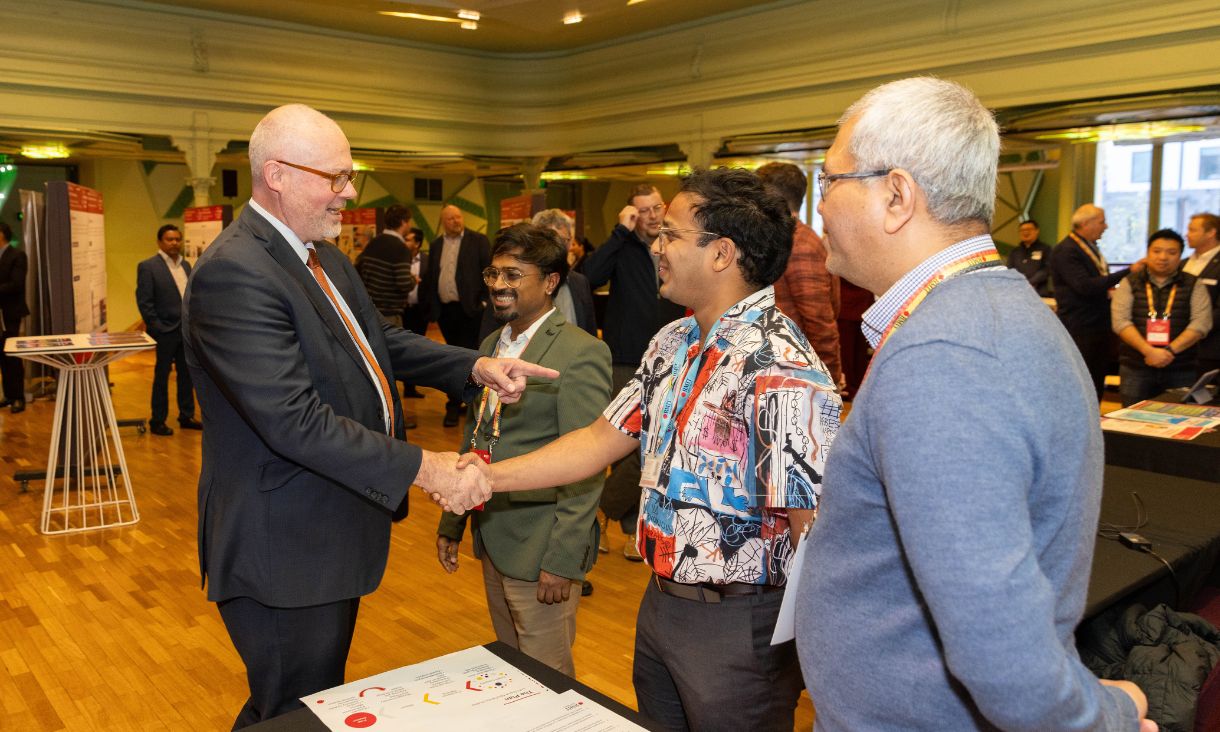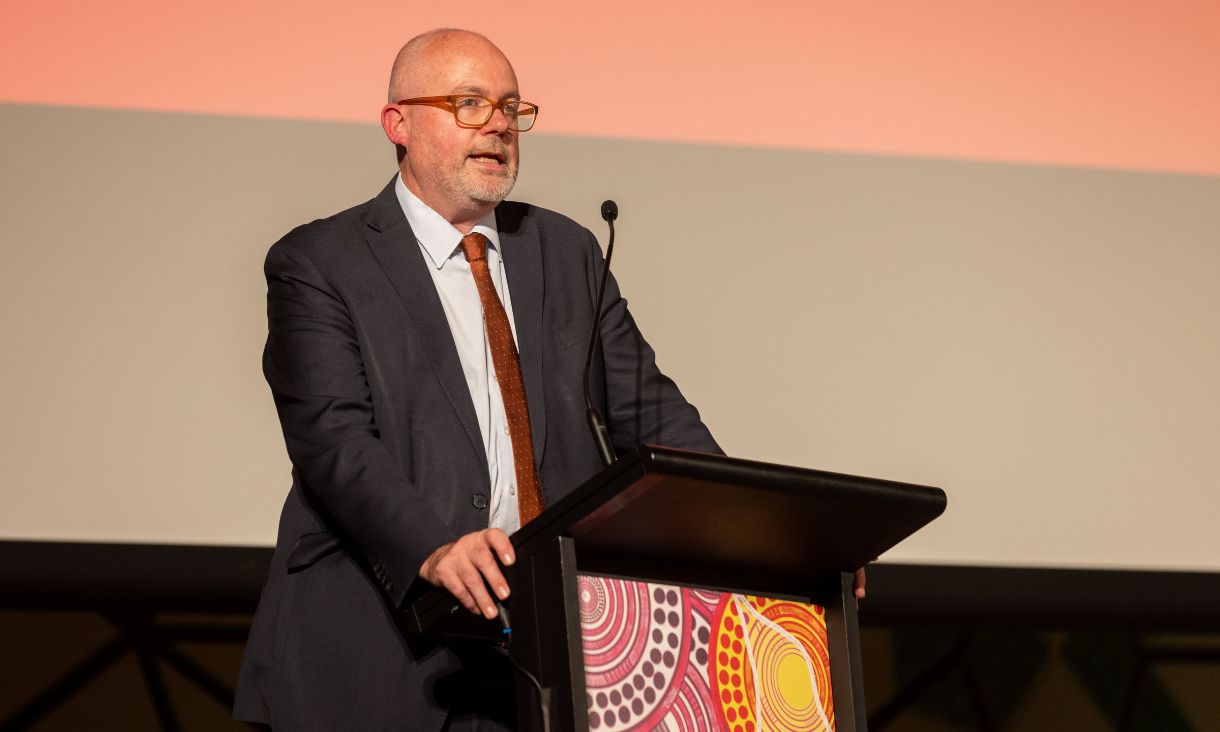This week, RMIT hosted the second edition of the Festival of Technology and Social Impact to celebrate the University's work using technology to drive innovation and create social impact.
Hosted at RMIT's Storey Hall, the theme of the 2025 festival was 'Fair, Innovative and Resilient Australian Futures', showcasing how RMIT works with government, industry, our students and communities to create a better society.
Festival organiser Professor Johanna Macneil said the breadth of what was on offer highlighted the increasing importance of social impact in shaping the work of not just the university sector, but our entire economy.
"The last 20 years has seen a growing emphasis on ensuring that good work in universities is translated for use by others and delivers measurable benefit. Successive governments have asked it of us, and our communities expect it of us," said Professor Macneil
"Many of us at RMIT have always been about co-creating knowledge with industry, professions, social partners and community, and turning it into action, so we welcome this change."

Academic Director, Engagement for Social Impact, Professor Johanna Macneil.
A keynote to shape Australia's future
The festival culminated with an address from the Federal Minister for Science, and Minister for Industry and Innovation, Senator Tim Ayres, who delivered a keynote on the future of the Australian economy, industry and supply chain.
As part of the Minister's visit, he participated in a tour of the festival's exhibition, sampling projects across RMIT that are creating social impact at the cutting-edge of technology, demonstrating innovation and impact in EdTech and Responsible Practice, as well as forging innovative partnerships with industry and government.

The Federal Minister for Science, and Minister for Industry and Innovation, Senator Tim Ayres.
The Minster then participated in the inaugural RMIT-Industry Leadership Forum with business, industry and civil society, alongside RMIT academic staff and executives. The forum brought this group of leaders together to discuss problems, initiatives and solutions related to Australia's long-term economic future.
During his keynote, the Minister reinforced how innovation is vital for Australia's current and future prosperity, resilience and living standards, and emphasised that for innovation to be effective, it requires strategic collaboration across the tertiary sector, industry and society to realise the benefits.
"It's widely appreciated that Australia has some of the best researchers in the world," he said.
"But to use an AFL analogy, Australia is kicking goals when it comes to research and development, but only behinds when it comes to onshore commercialisation.
"Sometimes, lack of strategic focus can stand in the way of targeted investment in the skills and facilities that Australian innovation really needs. And in the way of opportunities for research translation and commercialisation that Australia has too often missed or failed to take up.
"The role of government here is not just about investing in research capabilities and the commercialisation of discoveries - it's about providing the kind of leadership that helps to align the effort and ingenuity that's already abundant in our research system."
The Minister cited the importance of working Australians in creating and then benefiting from a fair and innovative future.
"Innovation is done by ordinary Australians, not done to them. There is no innovation without working people," he said.
"There's no long-term technological improvement or productivity uplift without the buy-in of ordinary Australians who, quite often, do the actual innovating.
"It's about advancing the human condition, lifting living standards, finding solutions to human problems.
"Relationships between workers and firms, inventors and investors, the industrial end-users, and of course, government too, are what drive economic change."

The Federal Minister for Science, and Minister for Industry and Innovation, Senator Tim Ayres cites the importance of working Australians during keynote.
The Minister concluded that to succeed in the national mission that underpins the Future Made in Australia initiative, Australia must make the most of its entire stock of skills and capabilities, as the nation works to decarbonise industry and secure our place in a more economically and strategically competitive world.
"We want to build the industries that position Australia for our future competitive advantage with our mineral endowment and vast solar, wind, gas and storage resources as the world goes to low and zero emissions by 2050," he said.
"We also want to deliver the economic and industrial resilience required of us to make Australia more secure in a more contested and volatile world with more great power competition than at any time since the 1950s.
"I know that RMIT is doing its part to provide the knowledge, research, and industry partnerships that help achieve the mission's goals."
Showcasing impact across the whole University
There were a range of other activities, events, discussions and initiatives on show across the festival.
Attendees heard from RMIT's City North Activation Team and RMIT Activator's 'VentureHub' social innovation accelerator program, who shared some of the exciting social impact work taking place in the City North Social Innovation Precinct.
Recognising their importance as part of any conversation about Australia's future, student attendees also had an opportunity to hear directly from industry leaders working at the forefront of AI about how we can prepare for and adapt to it, from a career and societal perspective.
Professor Colin Picker, Deputy Vice-Chancellor Business and Law at RMIT, said the festival's technology focus took a broader view of technology than just the individual innovations, linking it to the impact on lives and livelihoods in communities around the world.
"The Festival of Technology and Social Impact is part of what makes our technology initiative so much more than just a focus on the technology itself," said Professor Picker.
"It is a deliberate orientation to the way we do things, ensuring technology is applied thoughtfully, embraced strategically, and situated to deliver impact."






